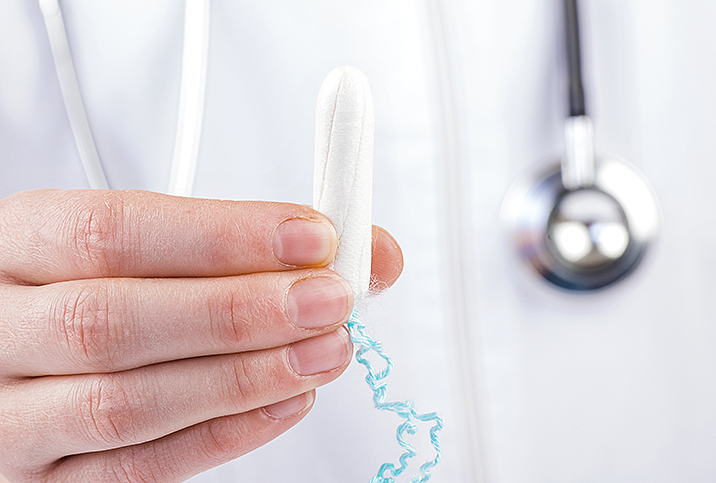What Are the Common Symptoms of Vaginismus?

Vaginismus is a psychosexual condition that makes vaginal penetration painful or downright impossible. Although the symptom most commonly associated with vaginismus is painful sexual intercourse, it can cause other complications.
Pain during sex and excessive vaginal tightening are some of the signs of vaginismus. Keep reading to learn more (and what to do about it).
What is vaginismus?
Vaginismus causes the vaginal muscles to involuntarily contract anytime something tries to penetrate the vagina—a penis, finger, tampon, sex toy or gynecological exam tool.
Vaginismus can be primary, which means you have it from birth, or secondary, which develops later in life.
The exact cause is still unknown, but it’s believed that sexual health conditions such as yeast infections and trauma from childbirth or psychological issues such as PTSD and anxiety can lead to vaginismus.
Between 5 percent and 17 percent of women suffer from vaginismus, but some experts think the condition is even more common.
Vaginismus is often misunderstood, which makes it challenging to receive a correct diagnosis. On top of that, many women don’t seek help for their symptoms out of shame or embarrassment.
The good news is that women with vaginismus can be treated successfully. It starts by recognizing the symptoms, which can be tricky.
Signs and symptoms of vaginismus
"Someone with vaginismus may experience symptoms such as finding it difficult to insert a tampon, struggle with vaginal penetration during sex or experience pain during sex," said Leila Frodsham, Mb.Ch.B., an OB-GYN and consultant gynecologist and a spokesperson for the Royal College of Obstetricians and Gynecologists in the United Kingdom. "These symptoms can significantly affect women’s well-being and mental well-being in many areas of their lives. The associated difficulty in conceiving can be particularly distressing."
Although only a medical professional can diagnose you with vaginismus, there are several key symptoms to indicate vaginismus. Pay particular attention to five issues that could be a sign of this medical condition.
1. Pain during intercourse
Pain during sexual intercourse (dyspareunia) is fairly common. Because vaginismus causes vaginal muscle contractions, any penetration is uncomfortable or impossible. That includes trying to penetrate the vagina with a penis, fingers or sex toys.
Some people describe trying to have penetrative sex like "hitting a wall," while others also experience pain, burning and stinging.
Several other conditions can make sex painful, including some sexually transmitted infections (STIs) and reproductive health issues, such as endometriosis. Speak to your doctor or OB-GYN if sex is too painful.
2. Difficulty using a tampon
Many people with vaginismus find using tampons difficult or even impossible, no matter how small the tampon is.
Similarly to sexual penetration, vaginismus makes it difficult to insert a tampon because the vaginal muscles are too tight. You might find that the tampon won’t go in or will cause pain while trying to insert it. Don’t try to force the tampon in, as this can make the situation even worse.
3. Difficulty and pain during pelvic exams
Pelvic exams aren’t fun for anyone, but if you find them especially painful or traumatic, it might be a sign of vaginismus.
Vaginismus makes it difficult for a doctor or nurse to insert fingers or medical tools into the vagina. Any procedure from routine checkups, STI tests or pap smears can be painful.
People who suffer from vaginismus might avoid getting sexual and reproductive health checkups, which can put them at risk of undiagnosed sexual health issues or health complications.
4. Fear or anxiety about penetration
Because vaginismus causes pain or discomfort with penetration, you might feel anxious thinking about it. This fear can make intimacy and sexual health checkups nerve-wracking or frightening, to the point where you avoid them altogether.
Although vaginismus doesn’t directly impact your ability to become aroused or reach orgasm, the anxiety it causes can get in the way of your sexual enjoyment. Dealing with the psychological impact of vaginismus is often the biggest obstacle to overcome.
Some research links vaginismus with a higher risk of relationship problems, anxiety, depression and low self-esteem.
5. Pelvic floor spasms
Vaginismus not only makes the vagina tighten up at the moment of penetration, but it also causes involuntary spasms of the vaginal muscles. You have no control over these contractions. They may be painful.
The muscle spasm can be totally random or be triggered by touching the vagina (such as during foreplay or a checkup).
The bottom line
As difficult or embarrassing as it might be, speak to your doctor or OB-GYN if you experience any of these symptoms—whether or not they’re caused by vaginismus. Get your sex life back on track. Don’t wait.


















